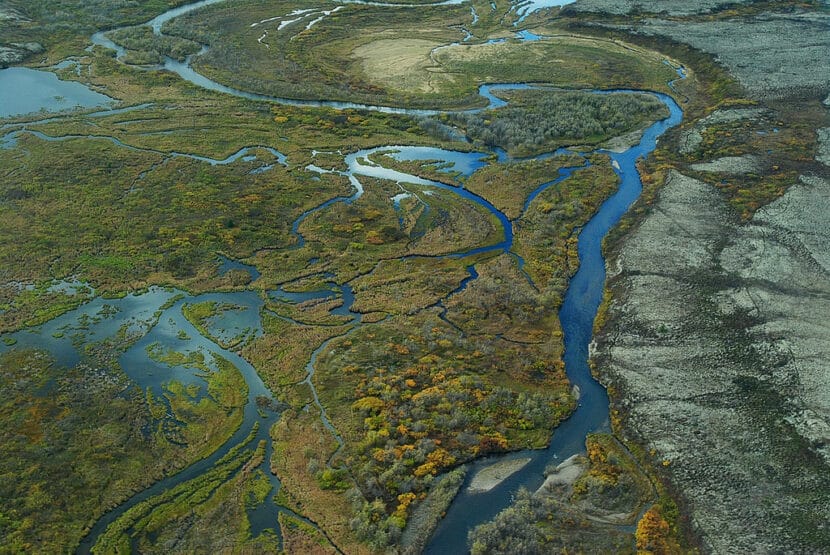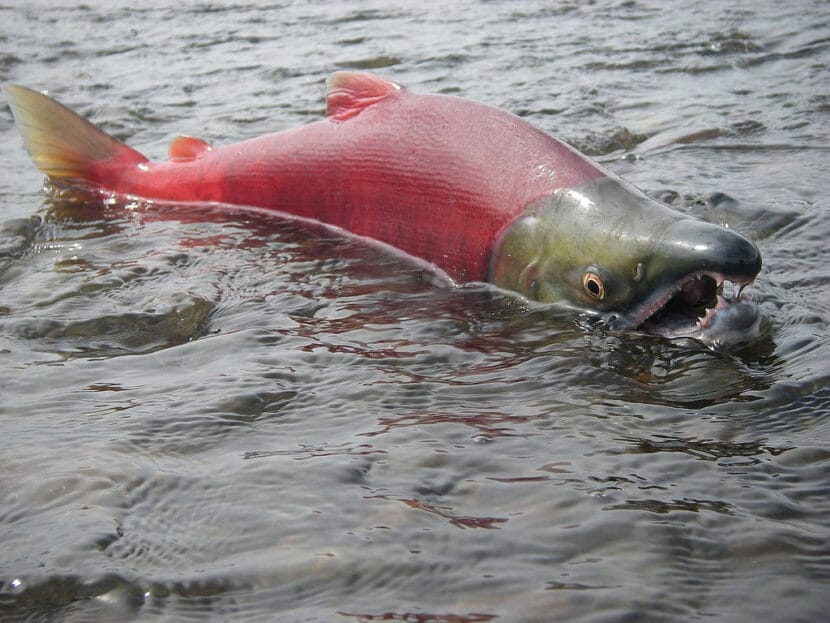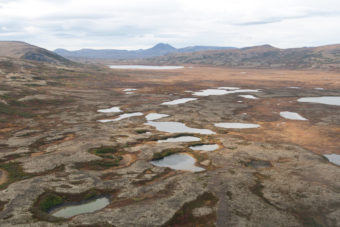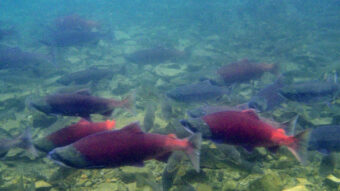
The U.S. Supreme Court on Monday rejected the state of Alaska’s request to consider its arguments for overturning a Biden administration decision that bars development of the controversial Pebble mine project.
The court, in a single line on a list of orders, denied the state’s attempt to bring the case directly to it without pursuing the complaint through the lower courts.
The administration of Gov. Mike Dunleavy had made the unusual request for direct Supreme Court deliberation in a petition filed in July.
The administration argued that the Environmental Protection Agency’s Jan. 30, 2023, determination blocking permitting of the Pebble project violated the state’s rights and would deprive the state of resource income.
Alaska Attorney General Treg Taylor, in a statement Monday, referred to those arguments.
“The EPA set a dangerous precedent when it issued a preliminary veto of a project on State land. I swore an oath to uphold Alaska’s Constitution, which requires developing and conserving all of Alaska’s natural resources for the maximum benefit of its people. Due to the national significance of the EPA’s veto, we went to the Supreme Court directly asking it to take up this case so the issue can be resolved as quickly as possible,” Taylor said in the statement.
The state will file its complaint elsewhere, Taylor continued.
“While SCOTUS did not pick up the case at this time, it does not indicate how the Supreme Court will ultimately rule on the merits. All this decision means is that we will take the more traditional route and file first in the federal district court. We will continue fighting for Alaska’s right to develop its resources through the federal court system,” he said in the statement.
Alaska Native, conservation and fishing groups that oppose the Pebble project welcomed the Supreme Court’s rejection but expressed worries about the state’s continued efforts to overturn EPA’s protections for the Bristol Bay region.

“Although we are glad to see the Supreme Court refuse to entertain Governor Dunleavy’s frivolous lawsuit challenging the EPA’s Clean Water Act veto of the Pebble Mine, we should have never gotten to this point in the first place,” Delores Larson, interim executive director of United Tribes of Bristol Bay, said in a statement. “Governor Dunleavy’s lawsuit was – and will continue to be – a massive waste of taxpayer money that only represents the interests of the company behind the Pebble Mine. The Tribes, fishermen, and local communities were just celebrating the EPA’s Clean Water Act protections for Bristol Bay, just to be thrown back into uncertainty less than a year later.”
The Bristol Bay Regional Seafood Development Association, another group opposed to the mine, also released a statement criticizing the Dunleavy administration’s legal move.
“While we are relieved and happy to see the Supreme Court dismiss Governor Dunleavy’s unreasoned attempt to challenge the EPA’s Clean Water Act veto of the Pebble Mine, as an Alaskan fisherman I am concerned about the amount of public money that was wasted to push this frivolous case,” Mark Niver, a board member of the commercial fishing association, said in the statement. “Unfortunately we know that this is not the end of the attacks on Bristol Bay and we will not stop working to defend our irreplaceable fishery. We need our elected officials to work with us to pass legislation to permanently protect Bristol Bay and all that the watershed supports in order to end the uncertainty that’s loomed over us for decades.”
The proposed Pebble mine would be a huge open-pit copper and gold project located in the uplands of the Bristol Bay watershed. The Bristol Bay region holds the world’s largest sockeye salmon runs, supporting major commercial, subsistence and sport fisheries. Broad opposition to the mine focused on anticipated impacts to Bristol Bay salmon and the people and wildlife that depend on it.
To pursue the Pebble argument at the Supreme Court, the Dunleavy administration used a Virginia-based firm that is known for advocating for conservative causes. The firm, Consovoy McCarthy, was first contracted by the Dunleavy administration in 2019 to pursue a legal fight against public employee unions; it later got a $600,00 contract that proved controversial.
Consovoy McCarthy also represents the Dunleavy administration in its legal fight against the federal government rural priority for subsistence fishing in the Kuskokwim River, a place where salmon runs have dwindled. The state’s position dismayed many Native groups, and the Alaska Federation of Natives and others intervened in favor of the federal government’s subsistence management.
In his budget released last month, Dunleavy proposed another $2 million appropriation to the Alaska Department of Law for such “statehood defense” efforts. At the Dec. 14 news conference on the budget, Taylor said the Legislature has already appropriated $11.5 million over the past few years for such efforts, about half of which has been spent. Ultimately, Taylor said then, about $15 million is expected to be spent on those legal fights.
This story originally appeared in the Alaska Beacon and is republished here with permission.



